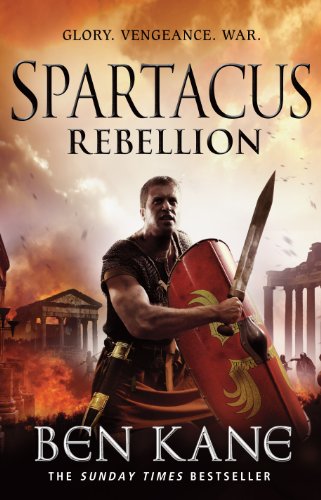Spartacus: Rebellion
This second volume of Kane’s take on the Spartacus story begins at the point at which the first book broke off: immediately following the departure of Crixus the Gaul and his men. As all who have read the first book will know, without Spartacus’s leadership, Crixus and his men go down to inevitable defeat. Spartacus, of course, continues to be plagued by problems among his followers and indeed is forced by his own men, who think that the series of victories over the Romans will go on forever, to turn away from the Alps and the road out of Italy.
But we have known from the beginning what the ending must be. Yet we identify with the protagonists, with Spartacus and with the slaves who follow him, who discover what it is like to live as free men. We are caught up with their hopes that Rome might – just might – be defeated. Slavery as an institution is, of course, never an issue. It was a normal and accepted part of the world Spartacus inhabited, and Kane avoids any suggestion that anyone thought otherwise. Nevertheless, we do feel the slaves’ yearning for freedom. We sympathise too with Spartacus’s two – I assume – fictional Roman followers, Carbo and Navio, who join him because they have their own grievances against Rome. They add balance to the story, an extra dimension and also a means by which Spartacus’s wife and child are enabled to escape the final cataclysm, thus ending with a note of hope – of a kind.
The documentary evidence on the life of the real Spartacus is fragmentary, but Kane succeeds in drawing a convincing picture of how it might have been, which is what a good historical novel should do.










